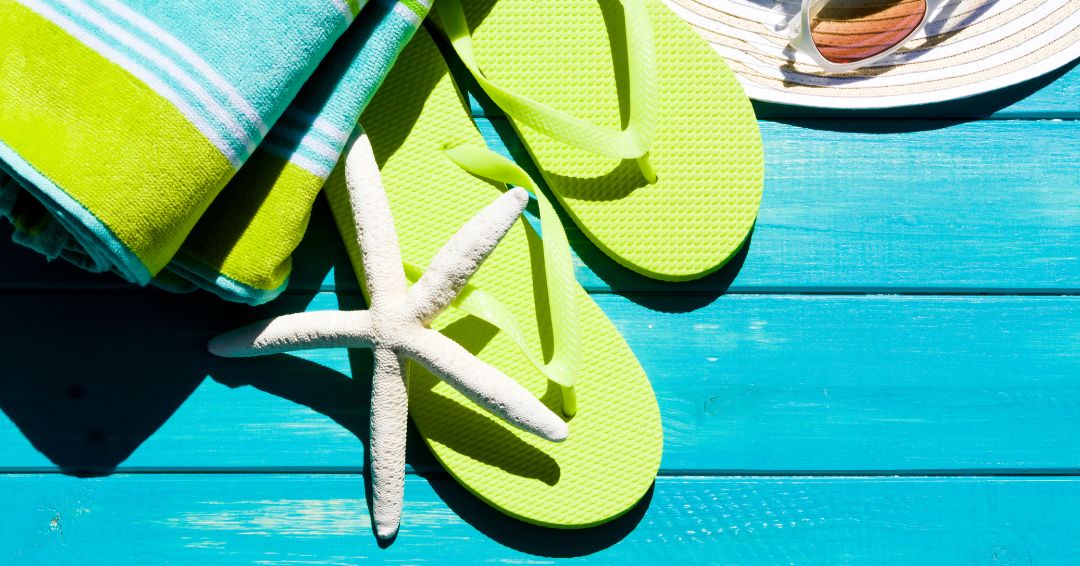
Whether you are heading to the beach, taking a dip in the pool, or taking a stroll to get ice cream, flip-flops are a popular shoe choice for slip-on and go!
However, having the wrong flip-flop can not only put a damper on summer, but can be a health hazard for those who do not pick the right ones to wear, according to Gigi Weiss, MSPT, RVNAhealth’s Director of Rehabilitation Services.
Flip-flops are breezy and cool, so what makes them so dangerous?
Explains Weiss, “Their appealing characteristics – lightweight, minimally structured, easy to slip in and out of – often lead to debilitating conditions, including back pain, knee pain, plantar fasciitis and Achilles tendonitis.”
Your aching back
For starters, says Weiss, many flip-flops have thin soles and minimal arch support. “This can wreak havoc on your kinetic chain – the muscles, connective tissues, joints, bones and nerves that work together – and cause back or knee pain.”
Heel and lower-leg pain
Another threat unique to flip-flops is that tiny thong that separates your big toe from the rest of its partners. While this design allows your feet plenty of room to breathe, it also means that the tendons in your toes need to work constantly to grip the bottom of your footwear.
Traveling a bit farther up the leg, another area where you might experience discomfort is in the Achilles tendon. This largest tendon in your body connects your calf to your heel bone, notes Weiss. “Flip flops that lack support and structure cause the Achilles tendon to strain in unnatural ways, particularly if you have low arches or flat feet.”
What to do?
Patients who visit RVNAhealth’s Rehabilitation and Wellness Center with the conditions described above are generally prescribed a routine that includes biomechanical stretches to address the underlying symptoms, says Weiss. But, she adds, prevention is the best medicine. “If you must wear flip-flops, purchase a pair with good orthotic support. And try to avoid wearing flip-flops exclusively.”
For more information, contact RVNAhealth’s Rehabilitation and Wellness Center at 203.438.7862 or rehabcenter@rvnahealth.org.
Visit RVNAhealth online here.